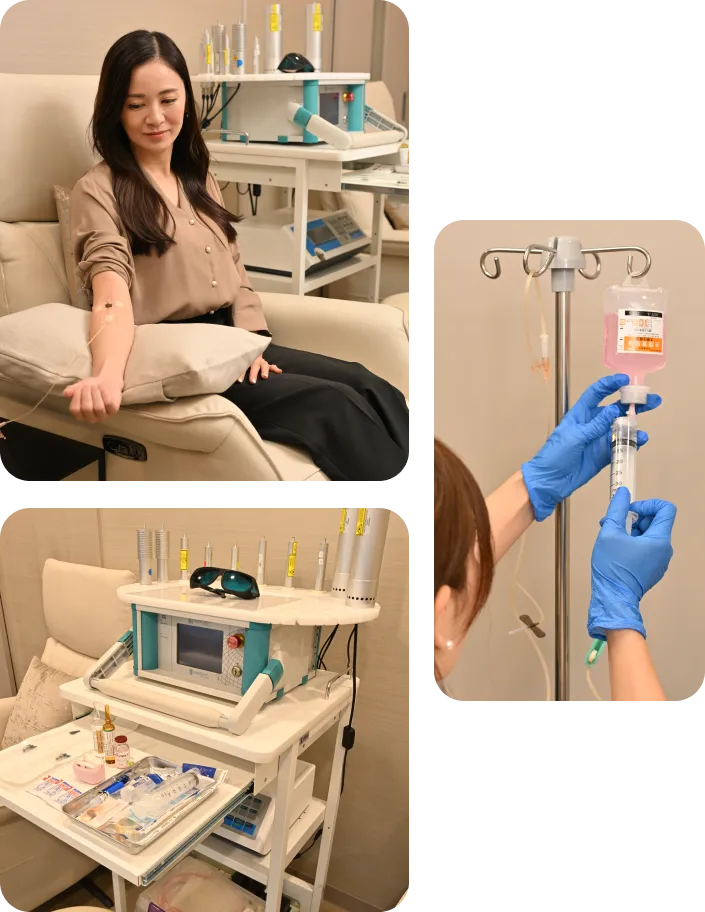Why Hyaluronic Acid Injections May Lose Their Effectiveness
Hyaluronic acid injections are commonly used to relieve knee pain caused by conditions like osteoarthritis. Yet, over time or after repeated treatments, the benefits may decrease. Here are a few reasons why:
- Progression of Knee Osteoarthritis: As the condition worsens, joint deformities put more strain on bones and soft tissues, which can lead to inflammation and hinder the effectiveness of hyaluronic acid alone.
- Increased Inflammation: While hyaluronic acid has anti-inflammatory properties, severe inflammation can outpace its ability to alleviate symptoms. As inflammation intensifies, hyaluronic acid’s benefits may become less pronounced.
- Weight Gain: Extra weight puts additional pressure on the knees, exacerbating the condition and reducing the effectiveness of hyaluronic acid.
- Increased Activity: Excessive physical activity or work can alter the load on the knees, making it harder to feel the full benefits of the injections.
- Potential Tolerance: Some speculate that the body might develop a tolerance to hyaluronic acid over time. However, since hyaluronic acid is a natural substance in the body, there's no solid evidence to support this theory. It's more likely that the knee's condition is worsening or that additional stress is being placed on it.
When to Reconsider Hyaluronic Acid Injections
If you notice any of the following signs, it may be time to reassess the effectiveness of hyaluronic acid injections:
- Increased Pain: If you feel that the injections are no longer providing relief, or if the pain is no longer being reduced, it might indicate that the treatment is becoming less effective.
- Decreased Mobility: If you find that walking, climbing stairs, or performing daily activities becomes more difficult despite the injections, it may be a sign that the treatment is no longer sufficient.
- Shorter Duration of Relief: If the effects of a single injection used to last for a month, but now the pain returns within a week, it could signal that the treatment is no longer working as effectively.
If you experience any of these symptoms, it's crucial to talk to your healthcare provider about your treatment plan. Continued injections, even with minimal relief, may not be the best course of action, especially considering the risks, such as infection.
Other Treatment Options
If hyaluronic acid injections no longer provide adequate relief, there are alternative treatments available:
- Drug Therapy: Painkillers and anti-inflammatory medications like NSAIDs may help alleviate symptoms. These can be prescribed in oral or topical forms.
- Steroid Injections: Steroid injections can provide immediate relief by reducing inflammation more effectively than hyaluronic acid. However, they can’t be used frequently and do not address the root cause of the issue.
- Rehabilitation: Outpatient rehabilitation focusing on strengthening the muscles around the knee and improving joint movement can help alleviate pain. Physical therapies such as heat/cold therapy and electrical stimulation are often included.
- Surgery (Knee Replacement): If the knee condition is severe and other treatments have failed, knee replacement surgery may be recommended. This procedure replaces damaged parts of the knee joint with artificial components, providing long-term relief. However, surgery comes with risks such as hospitalization, recovery time, and rehabilitation requirements.
Regenerative Medicine: A New Approach
If you are not keen on surgery, regenerative medicine offers a promising alternative. This treatment harnesses the body's natural healing abilities to repair and regenerate damaged tissue, providing an option for those who wish to avoid surgery.
- PRP (Platelet-Rich Plasma) Therapy: PRP therapy involves injecting concentrated platelets from the patient’s own blood, which is rich in growth factors. This treatment can help repair damaged tissue and reduce inflammation in the knee.
- Stem Cell Therapy: Stem cells, often sourced from adipose tissue or bone marrow, can promote the regeneration of cartilage and ligaments. This therapy has the potential to offer a more lasting solution compared to traditional methods.
Regenerative medicine uses your body’s own cells, reducing the risk of allergic reactions and eliminating the need for hospitalization or surgery. Stem cell therapy, in particular, offers a foundational approach to knee treatment by regenerating cartilage and ligaments.
Conclusion
Each treatment option comes with its own set of benefits and drawbacks, so it's essential to consult with a specialist to determine the best path for your specific needs. Additionally, as medical research continues, new treatments are constantly being explored. Stay informed and expand your options to ensure the best care for your knee health.











